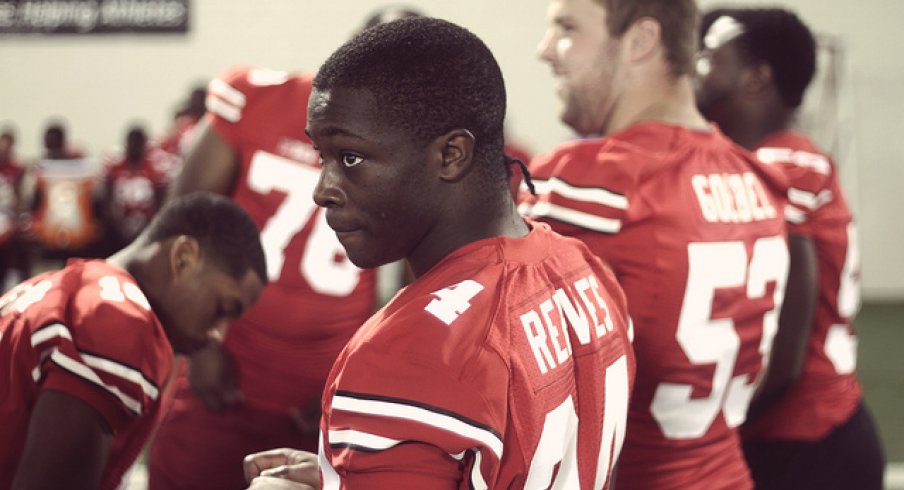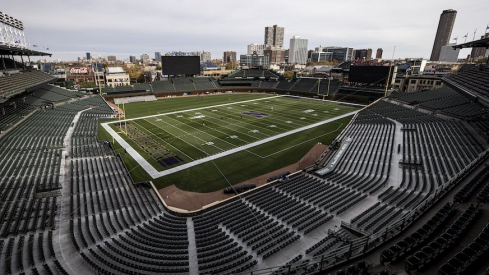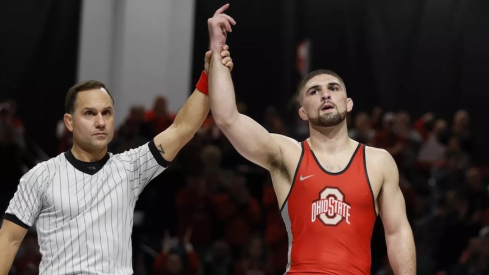Around this time last year, the great sage of basketball, Mark Cuban, came down from his gold plated throne situated deep in the wilds of the Dallas wilderness to deliver this blistering hot take about the death of football, which reads in part that
I wouldn't want my son playing football, would you ? I'm sure helmet technology will improve over the next 10 years, but why risk it ? There are plenty of sports to play. Plenty of ways to get exercise and if my son decided to do anything outside of sports and never pick up any ball of any kind, I'm fine with that. I can think of 1k things I would prefer him to get excited about doing.
And to be fair, that's a reasonable position to take. Part of it, anyway. The idea of football dying out in the next decade is pretty stupid, but for me personally, the thought that a future kid of mine could suffer multiple concussions by the age of 17 or 18 simply by playing a sport is a pretty sad one, even more so given that the potential concussions that come with playing any number of other popular sports is somewhere around zero.
Extrapolate that to a couple of generations down the line, and you can kind of sort of see why people are worried about the future of football in both a practical sense (maybe we... shouldn't?... let people use their skulls as weapons?) and in a knee-jerky sense (football is doomed, tear down Nick Saban's statue and melt it for scrap).
Those worries are shared by many, especially as youth football participation is on the decline across the country. Tens of thousands of families are deciding to opt out of the sport, and the best estimates are that youth football in general is facing a major decline in participation in the past 6 years or so. That's a downward trend that seems to be continuing, in large part thanks to some really high profile instances of good (and more importantly, profitable) players leaving football due to concussions, and it wouldn't be surprising to see more promising young players make the same move.
Yesterday David Briggs over at the Toldeo Blade posted an excellent story about Armani Reeves and his decision to hang up his cleats at Ohio State. The whole thing deserves your attention, but this part in particular got me:
Last season, [former NFL player Brent Williams] watched with pride but also apprehension as his godson, Armani Reeves, helped the Buckeyes win the national title. Reeves, a starting defensive back, suffered four concussions between September and January. Most frightening, the last two came on seemingly innocuous plays, including a jump-ball collision with a teammate at the end of the first half of the Big Ten championship game. Williams came to worry with every routine hit.
After the season, Williams knew what he had to do. He showed Reeves news footage of Turner and Smith — not from his teammates’ glory years but their current ones.
“It was a tough conversation to say, ‘Armani, I want you to look at these videos. I’m not going to let you live like that. I can’t. If there’s anything I can do to try to prevent you being in that position, we’re going to do it,’” Williams said.
Kevin Turner and Steve Smith rely on ventilators and feeding tubes as a result of a degenerative brain disease likely brought on by a career of getting hit in the head in the NFL. So like a teenager picking up their first pack of smokes, Reeves needed to know the risks involved if he continued to put his body and brain at risk after suffering several traumatic head injuries in such a short timespan. And once he knew, and saw, he walked away from football.
That takes an enormous amount of courage to do. Very few of us have the opportunity in life to become really great at something and admired for doing it in the way Reeves got to, and if we find that something most people would hold on to it like grim death to make sure that it doesn't go away. Not everyone has the guts to look that kind of fame and adulation in the eye and say "Nah, I'm good," but that's the reality of how many players and their parents view football now.
Not everyone shares the same outlook, however. Urban Meyer, from Brigg's article:
Meyer, speaking generally, said he “can’t imagine a school doing more” to research head injuries and care for ailing players.
Even as football remains under siege, he believes the game will remain the nation’s pastime for years to come.
...
“The good thing is I don’t see anyone hoping [football] is going to go away. It’s not going to go away.”
Obviously Urban Meyer has a vested interest in the sport of football and is anything but an impartial observer, but he also knows more than anyone the kinds of steps that are being taken to try and make the game safer. The increased concussion protocols, an effort to teach rugby-style tackling, and an overall better awareness of the risks inherent in football will hopefully lead to a safer game that is sustainable in the future.
What can't be allowed is stagnation. The stories of Chris Borland and Kosta Karageorge and Armani Reeves and the dozens or hundreds of other players like them demand that we evaluate football on a regular basis to ensure that it continues to be viable as a sport. If that requires large changes to the game, such as how kickoffs or extra points are handled to something as drastic as changing how offensive and defensive lines engage each other at the line of scrimmage, then it's something we need to accept.
Some of those changes would face major pushback among purists, but as fans of the game we can't let ourselves get locked into a circle-the-wagons mentality that refuses to acknowledge that there are serious safety concerns with the sport, and ignores the fact that football must evolve alongside modern medicine's ability to identify the issues with it. That in of itself would be even more damaging than any particular concern about safety.
But like Urban, I don't see football going away.
Remember what I said earlier about the decline in youth football participation? Well as it turns out, that decline is actually surpassed by the decline in participation in sports like baseball, basketball, and soccer, which is impressive given the sometimes cost-prohibitive nature of the game (although total enrollment numbers for football lag far behind those of said three sports). It's clear that the passion is still there.
In addition, the NFL in particular won't allow a gigantic, multi-billion dollar entertainment business shrivel up from the root on up. The changes that I referred to are being made and will continue to be made; football as a whole might look very different in 2025 than it does in 2015 (especially at the youth level). But that kind of change will be better than the alternative, which is nothing less than the slow death of a game that helps shape the cultural identity of millions of Americans.
Brent Williams still feels like football is safe for most people, and that it continues to be "the greatest game ever." I agree with the second part, but only as long as we try and make the first part a reality.


